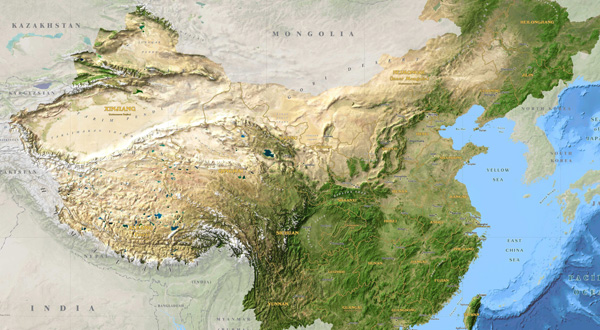Now - 00:08:40
The closest to the Sun planet: description and features
Almost for anybody not a secret that the Sun revolves around the many celestial bodies, which, in addition to planets, also include their satellites, comets, asteroids and other particles. Modern scientists were able not just to observe them using telescopes and other devices, but even to conduct studies of their specimens, obtained through the use of probes. All this now allows us to answer many questions about close to the Sun, planets, their satellites and other celestial bodies.
General description of the planets of the Solar system
In total, the composition of our Solar system there are nine planets. Each of them has its own astronomical and structural characteristics. Similar to Earth, they revolve not only around its own axis, but around a common celestial object. The closest to the Sun planet is mercury, Venus, Earth and Mars. They are commonly called “the planets of terrestrial group”. Their common characteristics are relatively small size, the predominance of rigid elements in the structure, the lack of rings and small satellites. After they are planets of Jupiter group, which also includes the Jupiter and Saturn, Uranus and Neptune. They are characterized by a dense atmosphere, and light components surrounding the nucleus. Around each of them there are rings consisting of crushed substances, and rotate multiple satellites. As for Pluto, he is constantly in the dark, and some scientists do not consider it a planet.
Mercury
Almost every student knows about what the closest planet to the Sun. It Is A Mercury. The size of all the representatives of the system he is in eighth place. An interesting fact is that the moons of Saturn and Jupiter (Titan and Ganymede, respectively) are larger in size. The diameter of mercury is 4880 kilometers, and its orbit is at a distance which is equal to almost 58 million kilometers from the Sun. In the entire history of this planet, flying only one ship (“Mariner 10” in 1974-1975), so now there are only about 45 percent of its surface. According to scientists, temperature variations here are in the range from 90 to 700 OK.
Recommended
"Knowledge is light and ignorance is darkness": the value, meaning and alternatives
There are some sayings that would seem to need no explanation, such as “teaching & ndash; light and ignorance – darkness”. But some still do not understand their meaning. But not only for such people is written by our article. I...
What was invented by Mendeleev for the army. The history and fate of the invention
D. I. Mendeleev was a brilliant Russian scientist-polymath, who made many important discoveries in various fields of science and technology. Many people know that he is the author of “Fundamentals of chemistry" and the periodic law of chem...
The origin of the Slavs. The influence of different cultures
Slavs (under this name), according to some researchers, appeared in the story only in 6 century ad. However, the language of nationality bears the archaic features of the Indo-European community. This, in turn, suggests that the origin of the Slavs h...
The closest planet to the Sun resembles the moon. The fact that there is no tectonic plate, and on the surface there is a large number of craters and huge chasms. At the parameter of density, mercury is in the system on the second place after Earth. The magnetic field of this planet is weak. Its power is compared to the Earth is a hundred times smaller. Mercury has no satellites, and you can see even with the naked eye.
Venus
The Second planet, judging by the distance from the Sun is Venus. In the case where the basis of such criteria as value, it is in sixth place. Its diameter is more than 12 thousand kilometers, and the orbit is 108 million kilometers from the Sun. The first spacecraft that flew to Venus, became 1962 "Mariner 2".

Compared to Earth, Venus rotates very slowly. In connection with the synchronization of its orbit and period of rotation, we always turned only one side of this planet. Very often, Venus is called “Earth's sister planet" because of their great similarity. And the truth is, its diameter is from our planet 95%, and weight — 80%. Very similar also are the density and chemical composition. Along with this, not to mention the fact that in many other settings, there are radical differences. There is every reason to assume that Venus had a large amount of water that eventually boils off, so now it is perfectly dry. The planet has no magnetic field (slow rotation), as well as satellites. You can see it with the naked eye, because in our sky it is the brightest “star”.
Earth
The Third from the Sun is Earth. The diameter is 12 756,3 km, and the orbit is at a distance of 149,6 million km from the heavenly bodies. Like other near-Sun planets, it has a history, with about 5.5 billion years. In the system the Earth is the most dense celestial body. Water covers 71% of its area. An interesting feature is that only here it exists in liquid form on the surface. Scientists suggest that this is largely the resistance of the temperature on our planet. The only natural satellite of Earth is Moon. Besides her, the orbit was removed many artificial bodies.
Mars
In the fourth place according to the degree of distancing from the Sun and seventh position largest is Mars. Its orbit is at a distance of about 228 million km from the sun, the moon, and the diameter equals to 6794 km. the First ship that flew to it, became “Mariner 4" in 1965. Like others close to the Sun, the planets, Mars boasts quite an original and interesting terrain. There are a lot of craters, mountain ranges, planes, andhills. The average temperature on Mars is about minus 55 degrees. It is possible to see even with the naked eye. For satellites, this planet has two: Deimos and Phobos, which rotate close to the surface.
Article in other languages:
PL: https://tostpost.com/pl/edukacja/13871-najbardziej-zbli-one-do-s-o-ca-planety-opis-i-cechy.html
TR: https://tostpost.com/tr/e-itim/13881-en-yak-n-g-ne-gezegen-tan-m-ve-zellikler.html
UK: https://tostpost.com/uk/osv-ta/13876-nayblizhch-do-soncya-planeti-opis-osoblivost.html

Alin Trodden - author of the article, editor
"Hi, I'm Alin Trodden. I write texts, read books, and look for impressions. And I'm not bad at telling you about it. I am always happy to participate in interesting projects."
Related News
Silicic acid and its application
Silicic acid theoretically is a compound of silicon oxide and water. Moreover, the ratio of these components can be quite varied. Therefore, in General, their composition may be represented by the formula. While silicic acid with ...
All state universities of Moscow with the budgetary places
Universities are always distinguished by their high professionalism, perfect training system, strong teaching staff. But many applicants try to enter the Institute on a budgetary place, because not every family can afford to pay f...
Bureaucracy – it is (literally) "clerical domination". From a socio-political point of view, this term describes the process of exercise of power by privileged individuals selected by the ruling class. Bureaucracy &nda...
Pre-Intermediate level of English
Why do we need to know what are the levels of English? Pre-Intermediate - the level to which is vested in all those who have already left behind courses Beginner, but still can not say that he speaks English solid average. An...
The astronomer is... the Great astronomers in history
the Astronomer – is the man who is interested in cosmic phenomena. What it means to be an astronomer? Who was the first to wonder about the mysteries of the sky? About the first great astronomers find out in our article.Astr...
Merchandiser or merchandiser: how to spell this term and what it means.
After the collapse of the USSR formed in its ruins countries with a planned economy turned into a market. In this regard, there was a whole series of new occupations with unusual for the Slavic ear titles: marketing specialist, it...






















Comments (0)
This article has no comment, be the first!